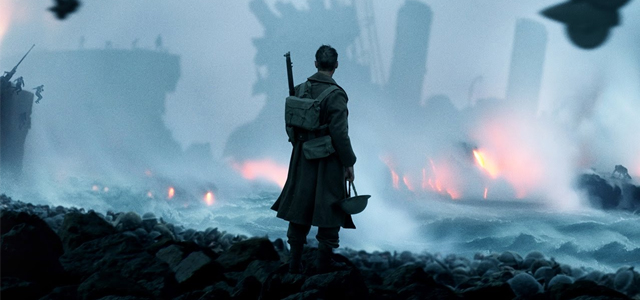Review: Dunkirk (M)
Starring: Tom Hardy, Kenneth Branagh, Mark Rylance, Fionn Whitehead
In May 1940, Germany advanced into France, trapping Allied troops on the beaches of Dunkirk. Director Christopher Nolan chronicles a piece of history not known as Britain’s brightest hour in the Second World War, with his latest masterpiece that catches the last days and hours on the beaches.
The evacuation of more than 300,000 soldiers in the midst of impossible odds at Dunkirk was what the then British Prime Minister Winston Churchill described as a “miracle of deliverance”. Were it not for the many civilian water craft that battled enormous odds to cross the English Channel and save many soldiers, many would have lost their lives, flanked on all sides as the Germans advanced toward the beaches.
This is Nolan at his creative and white-knuckle best. By telling the incredible story of Dunkirk from three very distinct points of view, we are given a glimpse of how desperation in the face of impossible odds can shape decision making and create unsung heroes.
With minimal dialogue, we witness the action through the eyes of Tom Hardy’s fighter pilot as he risks his life and those in his squadron to protect the boats leaving the shores to escape. We also see through the eyes of Mark Rylance’s civilian boat owner who is making the perilous journey across the Channel (with many others). Most importantly, we see what happens on the ground through the eyes of Fionn Whitehead’s private — who simply does everything he can to try to escape to freedom.
At every point as the action unfolds, the audience is given an intimate understanding of the stakes — in the cockpits of the valiant gunners; in a tiny vessel with the insurmountable task of saving soldiers from oil-slicked waters which surround bombed u-boats; and a disorienting and stressful journey with a soldier doing everything he can to stay alive in the face of almost certain death.
From the film’s opening frames, we follow a young soldier (Whitehead) as he makes his way through a French coastal town to the beach — only to witness other dumbfounded soldiers lining up, waiting for ships to arrive to ferry them back to Britain. Bombs drop across the beach, with the Luftwaffe gunners sinking boats which attempt to leave the shore.
Intense and nerve-wracking, composer Hans Zimmer’s score gives an other-worldly feeling of disorientation and underscores the unrelenting nature of the unfolding tragic events.
Dunkirk‘s intimate and claustrophobic portrayal of the horrors of war doesn’t need the violence of Saving Private Ryan to ram home the fact that war and conflict is unrelenting and gruelling. By ramping up the tension throughout the film, there’s a genuine pay off and emotional resonance when Kenneth Branagh’s commander spots the flotilla of British craft on the horizon.
Dunkirk is one of those films that leaves an idellible mark and will definitely go down as Nolan’s best film to date. It is filmmaking at its best and one of those experiences that will impact you long after you leave the cinema.
Adrian Drayton














